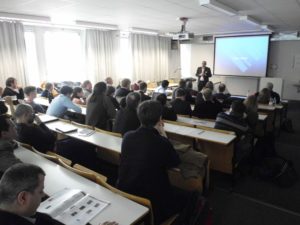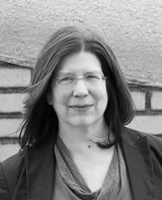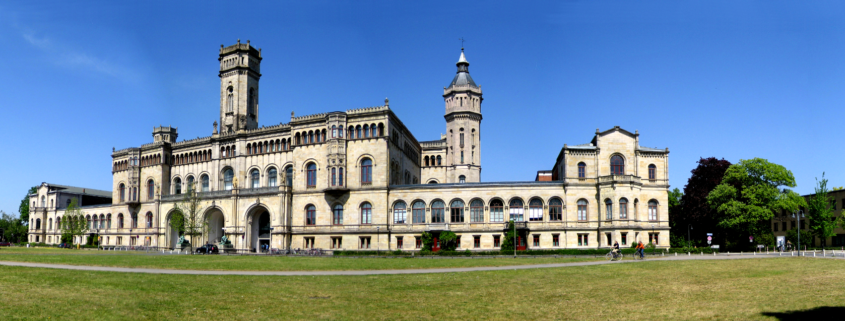Programme
Material for GWP.2013
Plenary Speakers
Please find below:
Panel Discussion
Wednesday, March 13, 18:45-20:30
Sitzungssaal, 14th floor, Conti-Hochhaus (Building 1502)
Königswörther Platz 1, 30167 Hannover
“Caught between a rock and a hard place:” Prospects and problems of careers between philosophy and science
The topic of the conference, “How much philosophy in the philosophy of science?”, is of special relevance for aspiring young researchers. Pre-Docs as well as Post-Docs often find themselves “between a rock and a hard place”, facing demands of a dual nature: On the one hand they face the rigorous standards of a career in philosophy, while on the other hand they are expected to possess detailed knowledge of the specific sciences for their work in philosophy of science. These two poles are often difficult to bridge, and can result in a serious tension being exerted on young researchers. For instance, though the need for interdisciplinary research is impressed upon young researchers by their advisers and by funding institutions, university positions are still mainly filled based on decidedly disciplinary profiles. Is this an unresolvable conflict for up-and-coming professionals aspiring for a career in philosophy of science? This panel discussion will focus on this and similar questions concerning philosophy of science as an interdisciplinary field in general as well as the prospects and problems of careers between philosophy and science.
Panelists
- Prof. Dr. Hanne Andersen (Aarhus University)
- Dr. Christoph-Friedrich von Braun, MSc (Andrea von Braun Foundation, Munich)
- Dr. Thomas Brunotte (Volkswagen Foundation, Hannover)
- Prof. Dr. Martin Egelhaaf (Bielefeld University) [canceled]
- Prof. Dr. Paul Hoyningen-Huene (Leibniz Universitaet Hannover)
- Dr. Robert Meunier (Institute for Cultural Inquiry, Berlin)
- Prof. Dr. Sandra Mitchell (University of Pittsburgh) [canceled]
The panel discussion is moderated by Dr. Marie I. Kaiser (University of Geneva). Organisation: Jun.-Prof. Dr. Maria Kronfeldner (University of Bielefeld)
There will be a short reception (appetizers and drinks) in the Foyer.
Those who want to participate in the lunch time workshop in which we prepare the panel discussion from the point of view of junior members of the field, should please write an email to: ***@***
GWP.2013 Programme Details
Mon, 15:00-16:15
Plenary Lecture:
Peter Godfrey-Smith: “On the Relation Between Philosophy and Science”
Mon, 16:45-18:45
Mechanisms I:
Jens Harbecke: “What is the relation between the regularity theory of mechanistic constitution and Gillett’s dimensioned realization?”
Marcin Miłkowski: “Boundaries of systems vs. boundaries of mechanisms”
Carlos Zednik: “Heuristics of Mechanism-Discovery and the Limits of Mechanistic Explanation”
General Philosophy of Science I
Vincenzo Politi: “Philosophy of Science as Link and Integrative Pluralism in Action”
Hans Radder: “What kind of philosophy in the philosophy of science?”
Marie I. Kaiser: “How Normative Is Naturalistic Philosophy of Science?”
Metaphysics:
Markus Schrenk: “How much Metaphysics in the Philosophy of Science?”
Cord Friebe: “Metametaphysics: what is a deflationary view?”
Julia Friederike Göhner: “Scientia Mensura: On Science as the Measure for Metaphysics”
Cross-Disciplinary Analyses:
Eran Tal: “Comparing Uncertainties: A Cross-Disciplinary Challenge”
Wolfgang Pietsch: “Natural and Causal Laws in Physics and Engineering”
Maria Kronfeldner: “To have an effect of one’s own: Causal complexity, reconstituting the phenomena, and explanatory values”
Symposium: Philosophy of Biology:
Emanuele Ratti [Emilio M. Sanfilippo, Federico Boem]: “Symposium – Ontology for and from sciences. The ontological analysis of biology”
Mon, 18:45-20:00
JGPS Plenary Lecture:
Wolfgang Spohn: “A Priori Principles of Reason”
Mon, 20:00-22:00
Social event
Tue, 9:15-10:30
Plenary Lecture:
Margaret Morrison: “The Scientific Nature of Philosophical Questions”
Tue, 11:00-13:00
Philosophy of Chemistry and Technology:
Carsten Seck: “Metaphysics within Chemical Physics: Case of ab initio Molecular Dynamics”
Alexandru Manafu: “How much philosophy in the philosophy of chemistry?”
Alfred Nordmann: “How Much Philosophy of Technology in the Philosophy of Science?”
Induction:
Ludwig Fahrbach: “How to Confirm Theories without Considering Rival Theories”
Michael Schippers: “Coherence and (likeness to) truth”
Cognition and Concepts:
Patrice Soom: “On Metaphysical Analyses in the Philosophy of Neuroscience”
Max Mergenthaler Canseco: “Is seeing believing? The role of visualizations in the Cognitive Sciences”
Iulian Toader: “Against Weylean Skepticism”
Models and Representations:
Krystyna Bielecka: “Explaining behavior with representations”
Michael Poznic: “Five ultimate arguments against similarity views of scientific representation?”
Maria Serban: “A place for contextualism in philosophy of science”
Symposium: Mechanisms:
Phyllis Illari, Stuart Glennan and Meinard Kuhlmann: “Symposium – The new mechanical philosophy and the unity of science”
Tue, 15:00-16:15
Plenary Lecture:
James Ladyman: “Philosophy, Science and Realism”
Tue, 16:45-18:45
Natural Laws: Giulia Pravato: “Natural Laws and Social Conventions. Exceptions as a Case Study” [canceled]
Matthias Unterhuber: “Less Lazy than One Might Think – Ceteris Paribus Conditions in the Context of Lewis’ Best System Analysis”
Andreas Hüttemann: “In Laws We Trust”
Philosophy of Biology:
Shunkichi Matsumoto: “Evolutionary Functional Analysis Revisited”
Predrag Šustar and Zdenka Brzovi?: “The function debate in the light of molecular approaches to evolutionary biology: the case of neo-functionalization”
Stavros Ioannidis: “Development and Evolutionary Causation” [canceled]
Mechanisms II:
Alexander Gebharter: “A formal framework for representing mechanisms?”
Tobias A. Huber: “Mechanisms and Mechanistic Explanations”
Elizabeth Irvine: “Mechanisms, Natural Kinds, and the Boundaries of Cognition”
Symposium: General Philosophy of Science:
Till Gruene-Yanoff, Hanne Andersen and Mieke Boon: “Symposium – Teaching Philosophy of Science to Scientists: Challenges and Opportunities”
Symposium: Phil of Physics:
Michael Krämer, Michael Stoeltzner, Koray Karaca and Martina Merz: “Symposium – The Return of the Higgs Hunters: Epistemological Perspectives on the Large Hadron Collider”
Tue, 19:30
GWP meeting
Wed, 9:15-10:30
Plenary Lecture:
Stephan Hartmann: “Philosophy of Science as Scientific Philosophy”
Wed, 11:00-13:00
Experiments:
Johannes Lenhard: “Shifting Balance. Experiments, Computers, and Simulations”
Lena Hofer: “(Re)Production of Empirical Scenarios”
Jan Sprenger: “The Interpretation of Sequential Trials in Medicine. A Plea for Conditional Reasoning”
Causality:
Simon Friederich: “Local causality in the light of the Principal Principle”
Patryk Dziurosz-Serafinowicz: “Are Humean Chances Formally Adequate?”
Johannes Roehl: “Physical Causation, Dispositions and Processes”
Symposium: Models and Representations:
Mathias Frisch, Rafaela Hillerbrand and Herman Russchenberg: “Symposium – Uncertainty in Climate Modeling”
Symposium: Induction:
Paul Thorn, Gerhard Schurz and Kevin Kelly: “Symposium – Formal Approaches to the Problem of Induction”
Wed, 15:00-16:15
Plenary Lecture:
Chrysostomos Mantzavinos: “Explanatory Games”
Wed, 16:45-18:45
General Philosophy of Science II:
Stephan Kornmesser: “Scientific Revolutions without Paradigm-Replacement and the Coexistence of Competing Paradigms in Linguistics”
Holger Andreas: “Descriptivism about Theoretical Concepts Implies Ramsification or Conventionalism”
Reduction:
Ramiro Glauer: “Emergence: a Lot of Philosophy and a Lot of Science”
Robert Meunier: “Pluralism in the life sciences – Complexity of nature or complexity of culture”
Fabian Lausen: “Using Insights from the Philosophy of the Life Sciences in the General Reductionism Debate”
Philosophy of Emotions:
Malte Dahlgrün: “Emotions and Natural Kindhood”
Predrag Sustar: “Naturalism in Action: The Case of Positive Emotions”
Jeff Kochan: “Subjectivity and Emotion in Scientific Research”
Philosophy of Physics I:
Karim Thebault: “Quantization as a guide to ontic structure”
Stefan Lukits: “The Full Employment Theorem in Probability Kinematics”
Johannes Thürigen: “Theory evaluation beyond empirical evidence: the case of research towards a quantum theory of gravity”
Symposium: Causality:
Michael Baumgartner, Vera Hoffmann-Kolss and Markus Eronen: “Symposium – Interventionism and Multi-Level Causation”
Wed, 18:45
Panel discussion:
“Caught between a rock and a hard place:” Prospects and problems of careers between philosophy and science
Thu, 9:15-11:15
Philosophy of Physics II:
Manfred Stöckler: “How to divide between physics and philosophy of physics?”
Emre Keskin: “Philosophy of Cosmology: Not enough philosophy, not enough cosmology.”
Thorben Petersen: “Is There Too Much Philosophy in The Rietdijk/Putnam-Argument?”
Historically oriented studies:
Cornelis Menke: “John Stuart Mill on the Existence of the Ether”
Dinçer Çevik: “Meeting the Metaphysics of Geometry: The legacy of Herbart, Gauss and Riemann”
Parzhad Torfehnezhad: “In Carnap’s Defense”
Philosophy of Social Sciences (incl. Economics):
Andrei Nasta: “A Justification of the Minimalist Notion of Economy” [canceled]
Kristina Musholt: “The personal and the subpersonal in social cognition”
Simon Lohse: “Social Emergentism Reconsidered”
General Philosophy of Science III:
Anke Büter: “The Agnosticism-Argument for Value-Freedom”
Adam Toon: “Models, fictions, and Emma Bovary”
Stephan Kopsieker: “Making sense of the distinction between functional and structural modularity”
Symposium: Philosophy of Biology:
Christian Sachse, Ulrich Krohs and Ellen Clarke: “Symposium – Organisms and biological individuals – Metaphysical and Epistemological reflections on the current debate”
Thu, 11:45-13:00
Plenary Lecture:
Sandra Mitchell: “Proteins in Context: Relations among Multiple Models” [canceled]
GWP.2013 Programme Schedule
|
Mon, 11.3. |
Tue, 12.3. |
Wed, 13.3. |
Thu, 14.3. |
|
9:15
–
10:30
|
|
Plenary Lecture:
M. Morrison: The Scientific Nature of Philosophical Questions |
Plenary Lecture:
S. Hartmann:Philosophy of Science as Scientific Philosophy |
9:15-11:15:
Symposium: Organisms & Biological IndividualsSessions:
- Philosophy of Physics II
- Historically Oriented Studies
- Philosophy of Social Sciences
- General Philosophy of Science III
|
|
10:30
–
11:00
|
Coffee break |
Coffee break |
|
11:00
–
13:00
|
Symposium: The New Mechanical Philosophy
Sessions:
- Philosophy of Chemistry & Technology
- Induction
- Cognition and Concepts
- Models and Representations
|
Symposium: Climate Modeling
Symposium: Formal Approaches to Induction
Sessions:
- Experiments
- Causality
|
11:15-11:45:
Coffee break |
11:45-13:00:
Plenary Lecture:
S. Mitchell: Proteins in Context: Relations among Multiple Models[canceled] |
|
13:00
–
15:00
|
Registration |
Lunch break |
Lunch break |
|
|
15:00
–
16:15
|
Plenary Lecture:
P. Godfrey-Smith: On the Relation between Philosophy an Science |
Plenary Lecture:
J. Ladyman:Philosophy, Science and Realism |
Plenary Lecture:
C. Mantzavinos:Explanatory Games |
|
16:15
–
16:45
|
Coffee break |
Coffee break |
Coffee break |
|
16:45
–
18:45
|
Symposium:Ontological Analysis of Biology
Sessions:
- Mechanisms I
- General Philosophy of Science I
- Metaphysics
- Cross-Disciplinary Analyses
|
Symposium: Teaching Philosophy of Science
Symposium: Higgs
Sessions:
- Natural Laws
- Philosophy of Biology
- Mechanisms II
|
Symposium:Interventionism
Sessions:
- General Philosophy of Science II
- Reduction
- Philosophy of Emotions
- Philosophy of Physics I
|
|
18:45
–
20:00
|
JGPS Plenary Lecture:
W. Spohn: A Priori Principles of Reason |
19:30
GWP meeting |
Panel discussion:
“Caught between a rock and a hard place:” Prospects and problems of careers between philosophy and science |
|
20:00
–
22:00
|
Social event |















































































